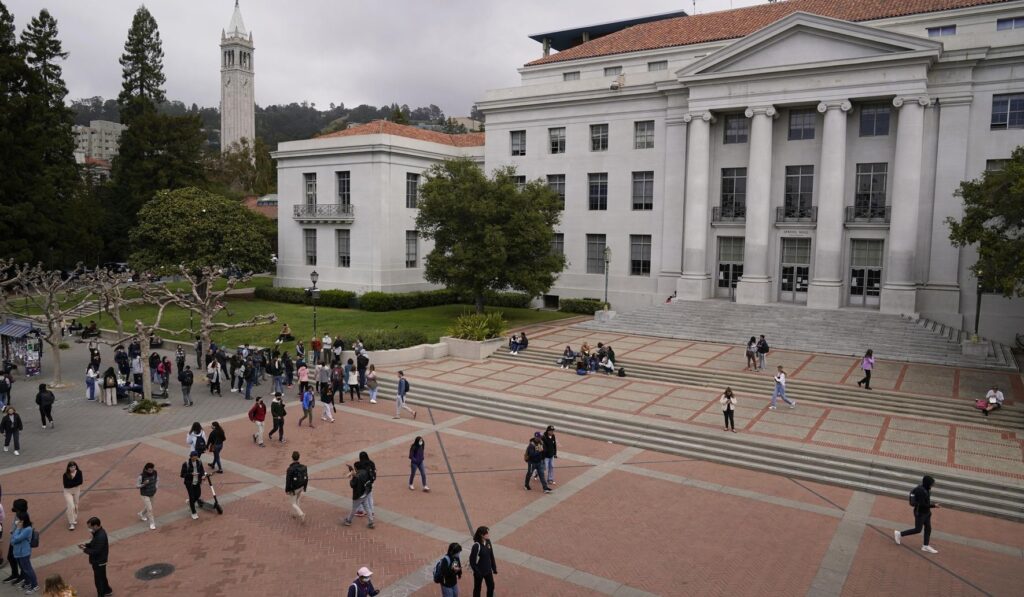The Justice Department has opened federal inquiries after a volatile confrontation at UC Berkeley involving a Turning Point USA event, and the fallout is raising sharp questions about free speech, campus safety, and enforcement of the law.
The campus scene turned chaotic when protest activity disrupted a scheduled event, leaving students, staff, and visiting speakers shaken and the administration scrambling. Californians and the nation watched as footage and eyewitness accounts painted a picture of disorder on a university that long billed itself as a free speech forum. That image has prompted federal attention and a political debate about what universities must do to protect expression without sacrificing safety.
The Justice Department has launched anti-terrorism and civil rights investigations into the University of California, Berkeley’s raucous protest against Turning Point USA. Those probes add a federal layer to inquiries already underway locally, and they signal that authorities see this as more than a campus disturbance. The probes could examine whether laws were broken or whether officials failed to uphold constitutional protections.
From a Republican perspective, the situation highlights two persistent problems: institutions that treat conservative voices as provocation and an official response that often lags until optics force action. Conservatives argue that peaceful, invited speakers deserve protection and that universities must enforce clear, neutral rules rather than bend to partisan pressure. The campus should be a place where ideas compete, not where one side is driven offstage by mobs.
Public safety was face-down when the protest escalated, and administrators are responsible for planning and response. Security failures and mixed messages from campus leadership allowed tensions to intensify rather than cool off. When a university invites outside groups, it accepts the duty to foresee possible conflict and to staff events accordingly, not to punt responsibility by blaming attendees after the fact.
Turning Point USA is a high-profile conservative student organization that frequently arouses strong reactions on progressive campuses, and that reality does not give license to violence. Protest is a protected form of expression when done peacefully, but crossing into intimidation or physical disruption changes the legal and moral equation. The Republican stance is clear: protect free speech robustly, and hold anyone who uses force or threats accountable under the law.
The dual nature of the Justice Department actions — anti-terrorism and civil rights — shows officials are willing to use serious tools to investigate what happened. Republicans have historically supported strong law enforcement measures when political violence or intimidation threaten civic life, even while warning against selective enforcement that targets conservatives. That tension means scrutiny should be even-handed and focused on facts, not political scoring.
University governance will be under a microscope as investigators and watchdogs review policies, communications, and on-the-ground decisions. Trustees, administrators, and campus police may face tough questions about training, resource allocation, and whether incentives on campus encourage escalation instead of de-escalation. The outcome could influence how colleges nationwide prepare for controversial speakers and protests going forward.
Legal fallout could include civil suits, internal disciplinary actions, and federal charges if authorities find coordinated intent to obstruct speech or to intimidate protected groups. Republicans will push for clarity: if laws were broken, prosecute; if policies failed, fix them; and if political bias influenced responses, document it. The broader debate continues about how to keep campuses open for debate while preventing the kind of disorder that undermines both safety and liberty.



